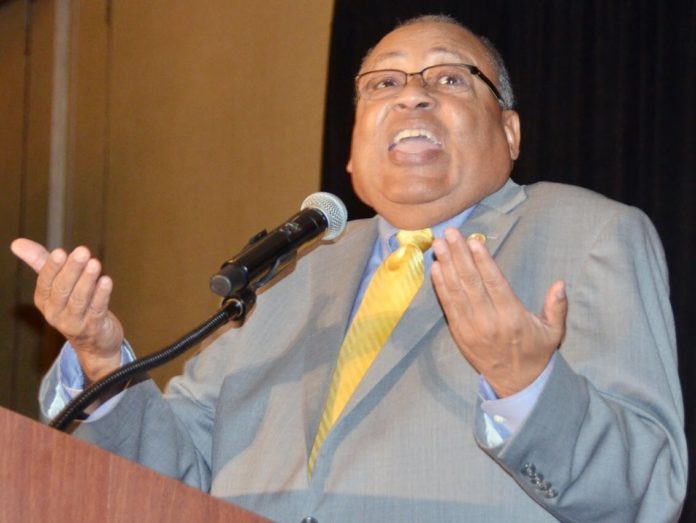Taking center stage at this year’s NAACP Memphis Branch Freedom Fund Celebration was an issue many have raised but few have been able to get an answer to.
Keynote speaker Leon Russell, chairman of the NAACP board of directors, took aim at how the Department of Justice is having a softer stance on prescription drug abuse cases versus how it has handled other drug abuse charges in the past. U.S. Attorney General Jeff Sessions “decided that the current prescription drug opioid crisis in this nation is now a mental health issue when crack was a criminal issue,” said Russell, triggering a round of applause.
Sessions wasn’t the only one getting hard-hitting critiques from Russell. Shortly after taking the podium, Russell had sharp comments for President Donald Trump and his administration as well on their decision-making regarding local, state and national policies in the last 420 days.
“We see a resurgence of the movement to privatize public education, to rip the budgets of state education,” Russell said. “Take it from our public schoolchildren and deliver into the hands of those who base ideas are established with a profit motive.”
Russell spoke to more than 400 guests at the annual luncheon at Memphis Hilton Hotel. Last year, the keynoters were former MSNBC host Melissa Harris-Perry and former Memphis Congressman Harold Ford Jr.
Since beginning her tenure in January 2017, NAACP Memphis Branch president Deidre Malone sought to sharpen the branch’s focus while adhering to NAACP’s legacy as the oldest and largest civil rights organization in the country. This year’s theme was “Steadfast and Immovable.”
Russell challenged NAACP Memphis branch members and local politicians alike to be more involved, similar to what the youth are doing nationally.
“Next week we are going to see the young people of this country come together in our nation’s capital,” Russell said, referring to the youth-led March for Our Lives rallies set for March 24.
“And let me tell y’all, we need to let them speak for themselves. But we need to be there to support them, we need to be there with them and we need to understand that the message that they are carrying is the message we have carried for the last 109 years.”



